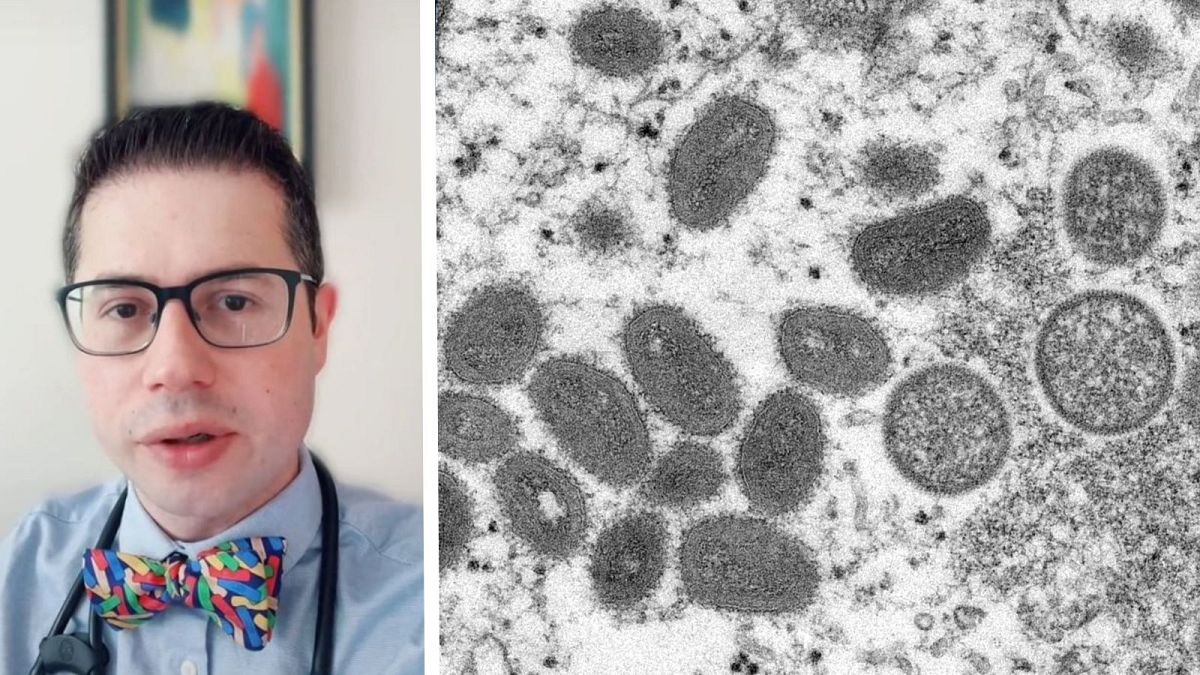A US-based paediatrician has been fighting medical misinformation about monkeypox on social media.
As monkeypox cases rise across the world, so is the online misinformation about the virus.
The World Health Organization (WHO) now says there are 780 new cases of the disease in non-endemic countries, including Portugal, Spain, and the United Kingdom.
And unfounded claims about monkeypox have also been spreading online, related to the origins of the virus and who it infects.
Dr Zachary Rubin -- a US-based paediatrician and clinical immunologist -- has been fighting medical fake news on TikTok since the start of the Covid-19 pandemic and he has now turned his attention to debunking monkeypox myths.
Dr Rubin now has a following of over 160,000 followers on TikTok and says he has seen an "overlap of misinformation" about monkeypox and coronavirus.
In one such video, the pediatrician helps debunk the false claim that monkeypox only affects LGBT+ people.
The vast majority of viral infections detected so far are in gay and bisexual men after sexual encounters. Last month, a leading adviser to WHO said the outbreak in Europe and beyond was likely spread by sex at two recent raves in Spain and Belgium.
But health officials have stated that anyone -- regardless of their sexual orientation -- is potentially at risk of catching monkeypox if they are in close contact with a patient, their clothing or their bed sheets.
"There is no link to say that this is a sexually transmitted disease, monkeypox mainly involves close contact," added Dr Rubin.
"To say that this only affects the gay community is completely false and this can be stigmatising," he told Euronews.
"This can make it very difficult to figure out how to contain the outbreak if people aren't comfortable with talking about it."
"When people are spreading this type of misinformation, it does confuse a lot of people into what monkeypox is and whether or not it should be taken seriously."
In another video, Dr Rubin fact-checks the false claim that monkeypox was created by a government to control people -- echoing similar false claims made previously about COVID-19.
"I decided to use TikTok because it offers more face-to-face possibilities to answer questions in creative ways to get people's attention," he said.
"We need more people -- credible scientists and healthcare professionals -- to be able to thwart this misinformation crisis."
"We have already seen how it plays about with COVID-19 and we don't want that to happen with monkeypox."
The WHO has said that the risk posed by monkeypox to global health was “moderate” and added that no deaths have been recorded outside African countries where the disease is endemic.
The ongoing outbreak of monkeypox in Europe and elsewhere marks the first time the disease has been known to spread among people who have no previous travel links to Africa.
Last week, WHO’s top expert on monkeypox, Dr Rosamund Lewis, said she doubted the disease would trigger a pandemic but said actions should be taken quickly to curb its spread so it doesn’t become entrenched in new areas.
For Dr Rubin, this could be social media action to combat an infodemic of false claims.
"My main concern is that people aren't going to take this seriously enough when we consider that this type of disease has a high fatality rate and can severely affect children," he told Euronews.
"We have to make sure that we call out these myths and educate the public appropriately."
